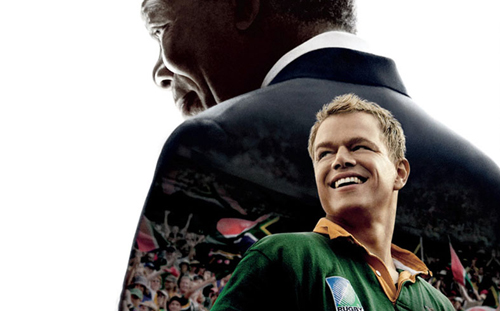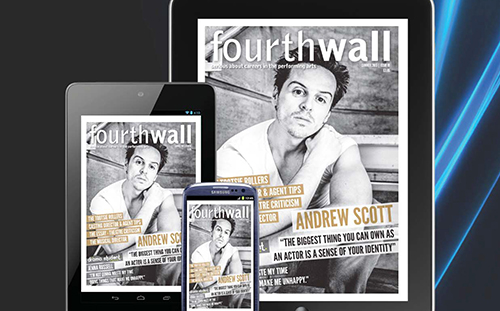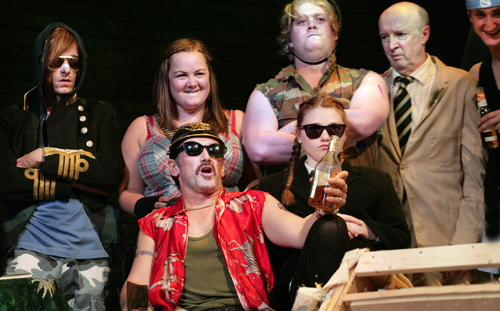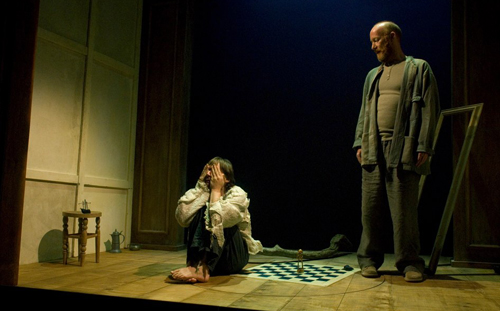
This time the man is Nelson Mandela, newly elected president of South Africa. His quest is to unite the country – torn apart by years of apartheid and white oppression – by getting the populous behind their beleaguered national Rugby Union squad who must rise to the challenge of winning the World Cup competition as host nation?
The main guarantee that this can be achieved cinematically – apart from just respecting historical accuracy – is by inviting Morgan Freeman to play Nelson Mandela. These respective individuals have the advantage of being universally iconic, but Mandela's unmistakable vocal style is sometimes overtaken by Freeman's own distinctive persona creating a strange metamorphosis. Although the dialogue is thoughtfully presented, it is geared mainly to Mandela's wise considerations as oracle, expressed by him in aphorisms.
Eastwood has another equally strong commercial draw in casting Matt Damon as the South African team captain Francois Pienaar who becomes the conduit for Mandela's plan. Damon's protagonist is really a cameo role and a little one dimensional. While Mandela does all the talking, Pienaar does most of the listening and all of the running around on the rugby pitch.
Eastwood satisfies the sentimental conclusion to Mandela's aspirations but avoids any suggestion that the future reality will be very different.
Mandela recounts to Pienaar that his strength in prison had come from reading WE Henley's poem “Invictus”, Little was made of its specific significance except as the inspirational currency offered by the president to his Rugby captain. When Pienaar visits Robben Island, Mandela is heard quoting the last lines from the poem: “I am the master of my fate; I am the captain of my soul”, but Pienaar's reflections on this were somewhat muted in contrast, except on the playing field where he is demonstrably the master and captain of his team.
The change of powerbase and bitterness of former racial conflicts are at the centre of most of the scenes connecting Mandela with his political and security teams; but there is an absence of any convincing dramatic devices or intensity which might have made the story development less flat and episodic. Scenes with his family demonstrate clearly the fractious nature of his conciliation plans but Eastwood fails to explore the emotional complexities. There is one exchange with his daughter who declines to take back a bracelet belonging to his ex-wife Winnie. If this rejection is supposed to be symbolic or meaningful, it is never realised.
The idea that Mandela is exploiting sportsmen for political ends is not really debated or contended. The South African Rugby team's ultimate victory in the final match and the subsequent celebrations endeavour to show that the mending and melding of interracial feeling must mean that real change is possible. Eastwood satisfies the sentimental conclusion to Mandela's aspirations but avoids any suggestion that the future reality will be very different.
In the end it is an old-fashioned feel-good sort of docudrama, based round a sporting event which heralds Mandela's achievement in the face of not too much adversity.
While the film reinforces the qualities of integrity and reputation of the man, it does little to question the real success off his mission.
-John Ayton – www.visphoto.co.uk



Be the first to comment